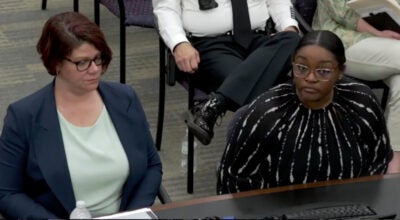NC court dumps speedway’s suit over $80M deal
Published 12:00 am Thursday, October 3, 2013
RALEIGH (AP) — One of the country’s largest auto racing track operators can’t claim local officials reneged on an offer of $80 million in tax breaks because there was never a binding contract for the money in exchange for building a new drag strip and making upgrades at the Charlotte Motor Speedway, a court ruled Tuesday.
A three-judge state Court of Appeals panel ruled unanimously that Speedway Motorsports Inc. and Charlotte Motor Speedway have no grounds to revive a lawsuit against Cabarrus County, where both companies are based. The ruling means the companies can’t appeal further to the state Supreme Court, though the high court could still consider the case at its discretion.
Race track magnate Bruton Smith, who heads both companies, had threatened in 2007 to move the 135,000-seat speedway and build a new drag strip somewhere other than the Charlotte region without the tax breaks.
The 30,000-seat, four-lane zMax Dragway officially opened Aug. 20, 2008, just three weeks before its first scheduled race. But it wasn’t until the following day that a proposed contract for tax breaks was put in writing. The track operator rejected those terms.
The companies argued they invested millions into the drag strip construction based on a Nov. 21, 2007, letter from the chairman of the county commissioners and the mayor of Concord, the city where the speedway is located. The officials said in their letter that they were committed to providing $80 million for road, pedestrian, utility and noise-reduction projects.
But that didn’t equal an enforceable contract, the court said.
It’s not clear if SMI — which owns the track and seven others in Georgia, Tennessee, California, Kentucky, Nevada, New Hampshire and Texas — has yet seen any of the $80 million announced in 2007. Spokesmen for the county and the speedway did not respond to requests for comment Tuesday. Concord was dropped from the lawsuit after agreeing to pay $2.8 million and getting land easements.
A lawyer for the speedway and SMI said the companies were considering their next move.
“We respectfully believe the court of appeals took a wrong turn,” Charlotte attorney Preston Odom III said in an email.
Around the time the appeals court was hearing the case this spring, Smith threatened to move the top-level NASCAR Sprint Cup race staged at the Charlotte Motor Speedway to another SMI track in Las Vegas. This month’s Bank of America 500 and two other major races held at the speedway generate a local economic impact of about $420 million, the Charlotte Sports Commission said in a report last year.
Smith later backtracked, saying he spoke in anger. The speedway and the county are waging a separate fight over the property’s tax value, which the county estimated at some $200 million more than the company.
SMI reported profits of $42 million in 2012 on revenues of $490 million. The company said it lost $69 million in the first half of this year after hefty-one time charges and poor weather that reduced attendance at some of its races.



